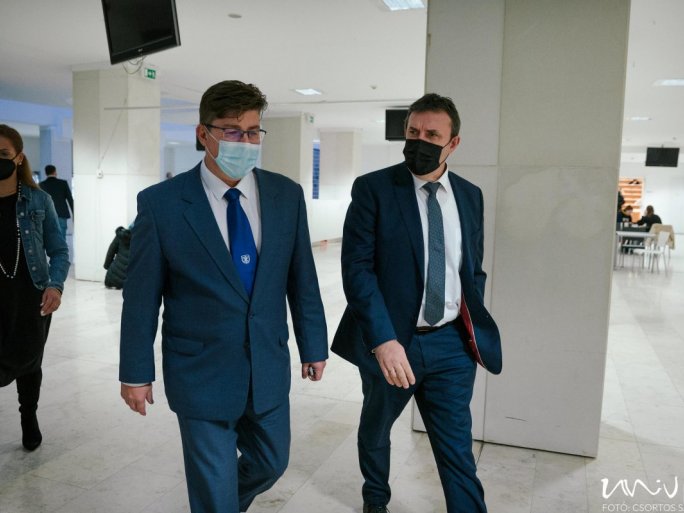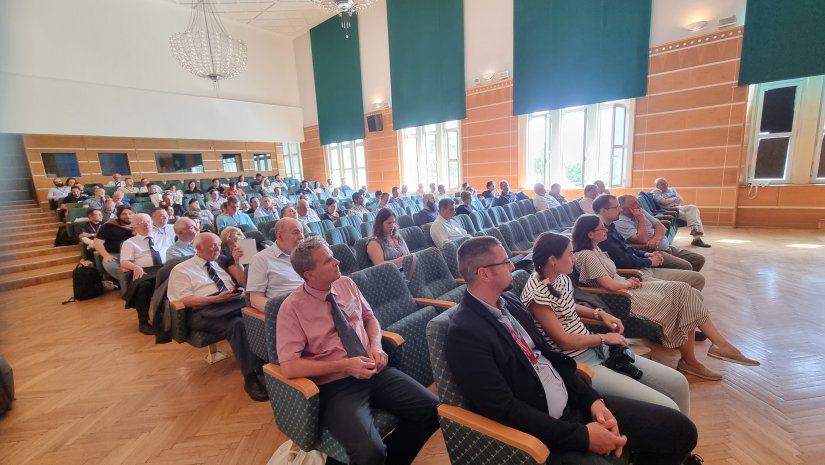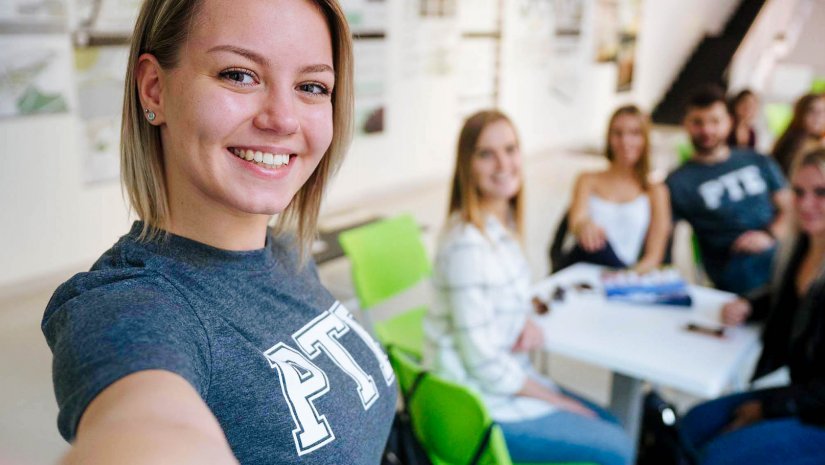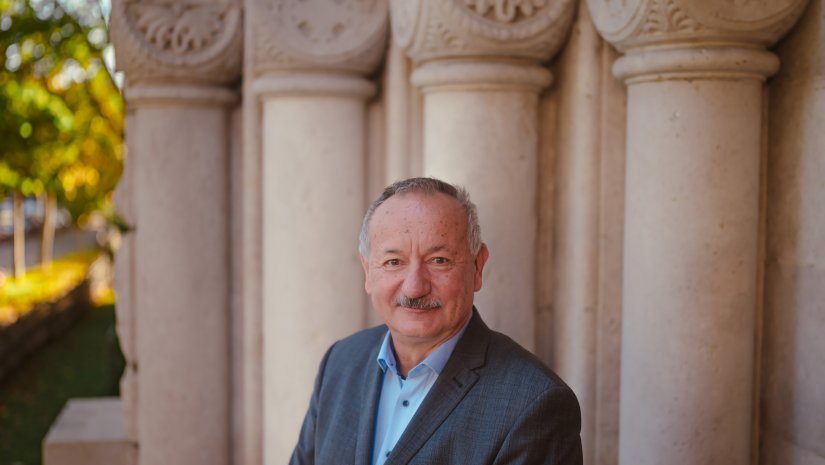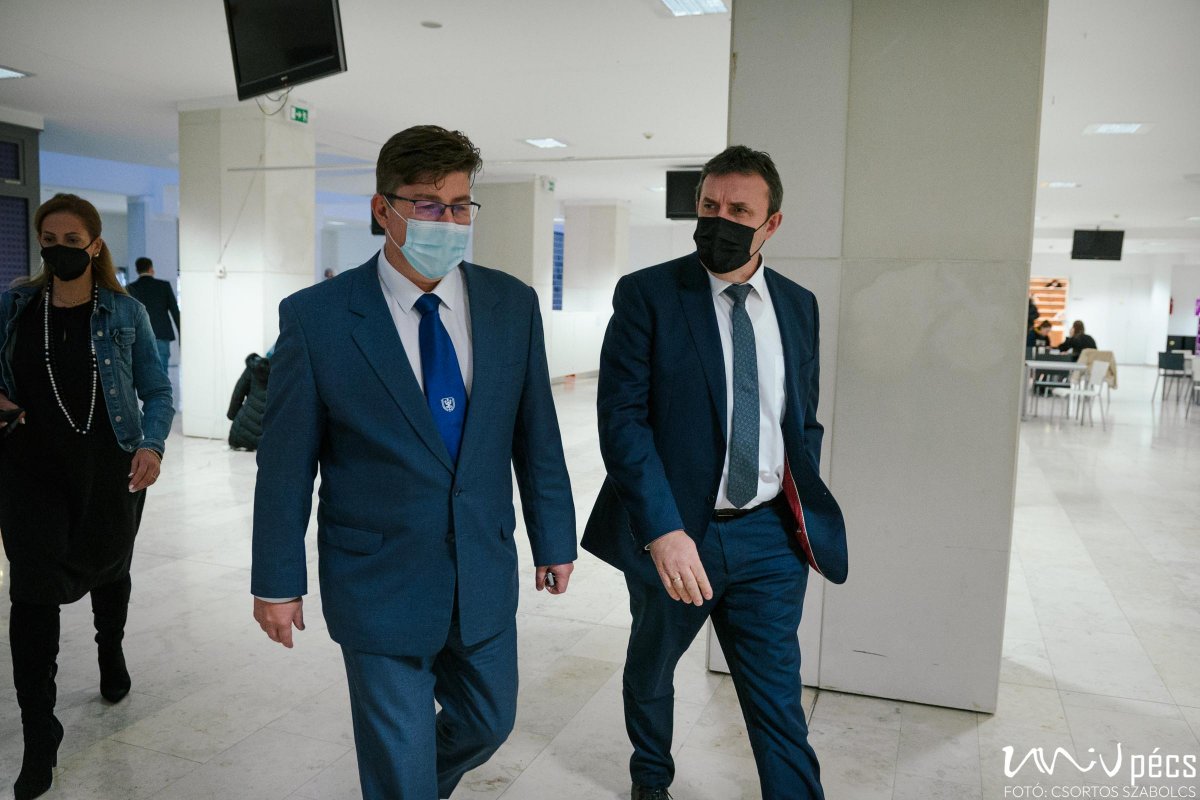
In 2017, the University of Pécs and its consortium partner, the University of Debrecen, won a HUF 1.85 billion non-reimbursable grant from the European Union in the Economic Development and Innovation Operational Programme published in the framework of the Széchenyi 2020 programme. This funding has enabled the opening of the UP 3D Printing and Visualisation Centre on the campus of the Faculty of Engineering and Information Technology, creating an exciting, open and effective intellectual workshop, both in terms of instrumentation and expertise. Dr. László Palkovics, Minister of the Hungarian Ministry for Innovation and Technology also paid a visit to the UP 3D Printing and Visualization Centre on the occasion of the closing event of the project on 16 December.
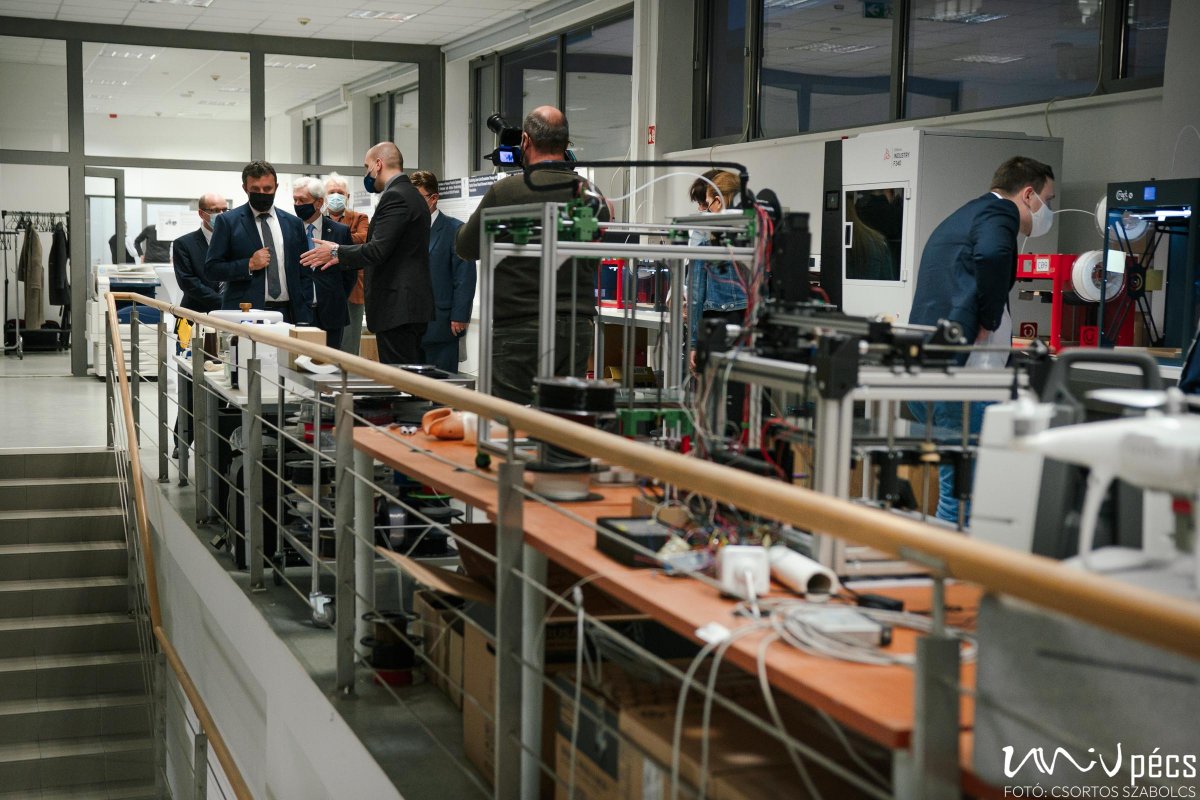
The 3D Printing and Visualisation Centre of the University of Pécs combines a well instrumented lab with relevant expertise and innovation opportunities uniquely in Hungary, in a diverse, university environment. The UP 3D Project, as a flagship of regional strategic programmes, was created based on the Rector's initiative, bringing together the innovation efforts of several faculties - the Faculty of Engineering and Information Technology, the Faculty of Music and Visual Arts, the Medical School, the Faculty of Sciences and the Faculty of Business and Economics. The UP 3D Printing and Visualisation Centre itself was set up through funding from the government as well as the European Union, and its construction started in 2016.
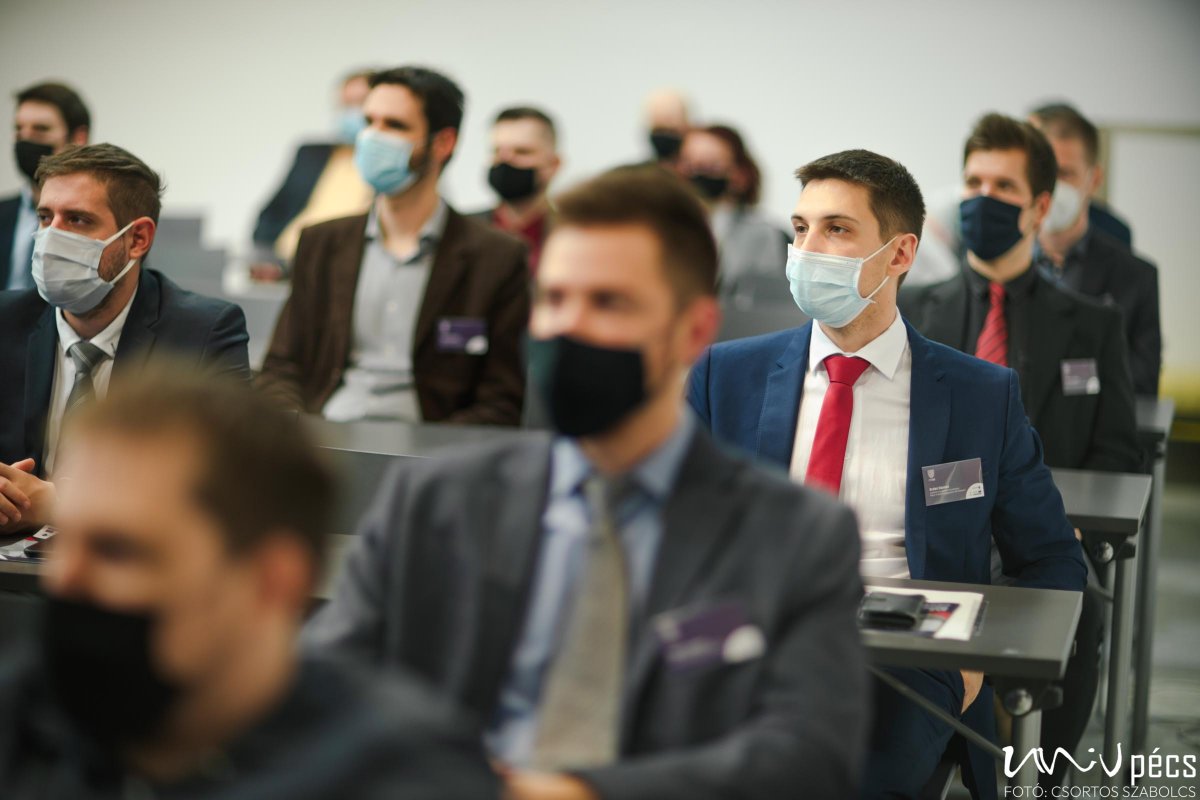
Now, it has a complete portfolio of services based on 3D technologies that can serve researchers, healthcare, industry, R&D&I activities of UP and the region, educational purposes and even individual citizens.
In setting up the UP 3D Centre, the professional management has put a strong emphasis on enabling all development phases, from technical design to physical implementation, to be carried out in-house, so that finished, marketable products can be created from scratch, from idea to final product.
The scientific expertise of the centre’s staff and the diversity and multidisciplinary nature of their projects make the UP 3D Centre stand out from the crowd of 3D technology workshops.
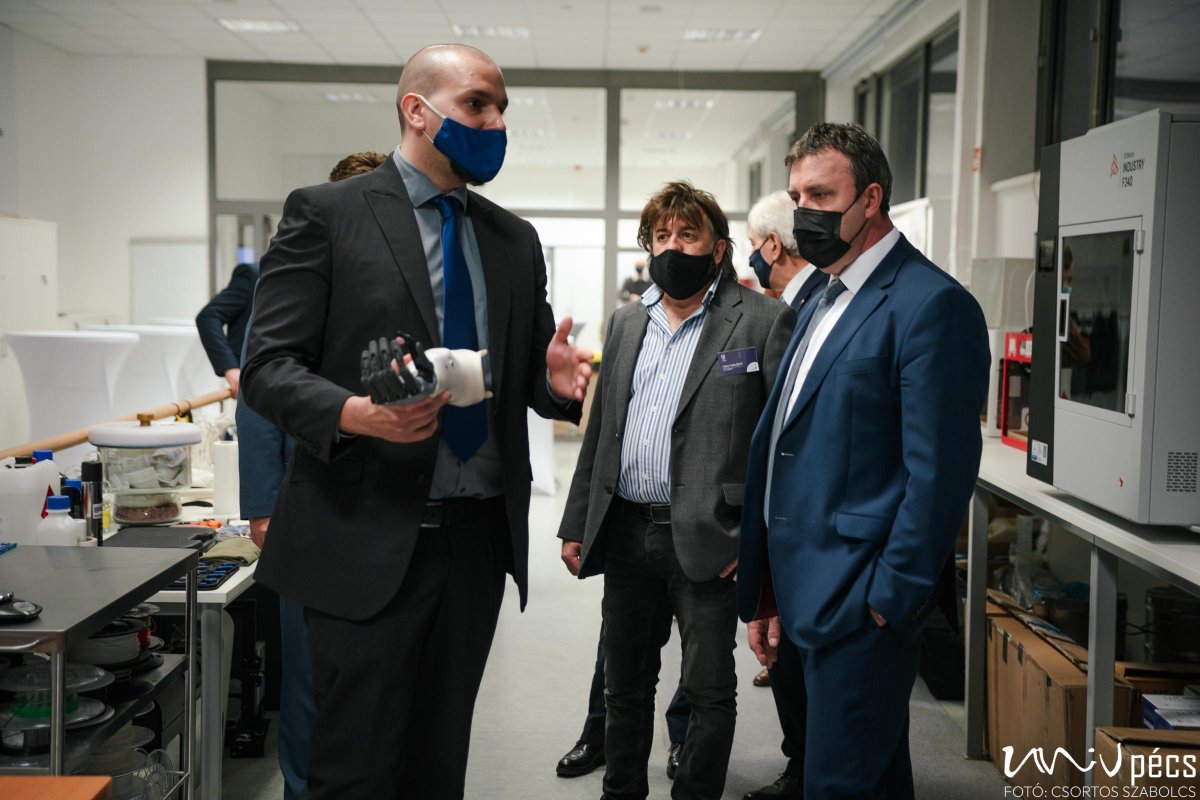
Research and development work is being carried out at the frontiers of 3D technology, such as prosthetics in personalised medicine; the development and small-scale production of various simulation devices for general medical training; rapid prototyping for industry, benefiting from the cost-effectiveness of additive manufacturing; master parts for foundries; concept models for tenders; and the exploration of opportunities to contribute to the production of automotive components. Priority will be given to 3D imaging solutions (e.g. 3D scanning, photogrammetry, virtual and augmented reality solutions), 3D-based education and design (in particular to support medical training fields) and the specific development of related software solutions. The specific professional and high quality innovative environment has culminated in collaborations and projects such as the joint work with the prosthetic design and manufacturing company CorvusMed and the creation of Prolimb, a university spin-off company for the development of the Ember Arm artificial intelligence-driven learning prosthesis. The development of a bionic printer in collaboration with the Faculty of Pharmacy and 3D material technology studies on biocompatibility and sterilizability are being carried out with a specific practical aim. The development and production of surgical drilling and cutting templates (Dept. of Neurosurgery), medical hand instruments (Dept. of Dentistry, Oral and Maxillofacial Surgery) and simulation models (Dept. of Paediatrics) are being carried out for the UP Clinical Centre.
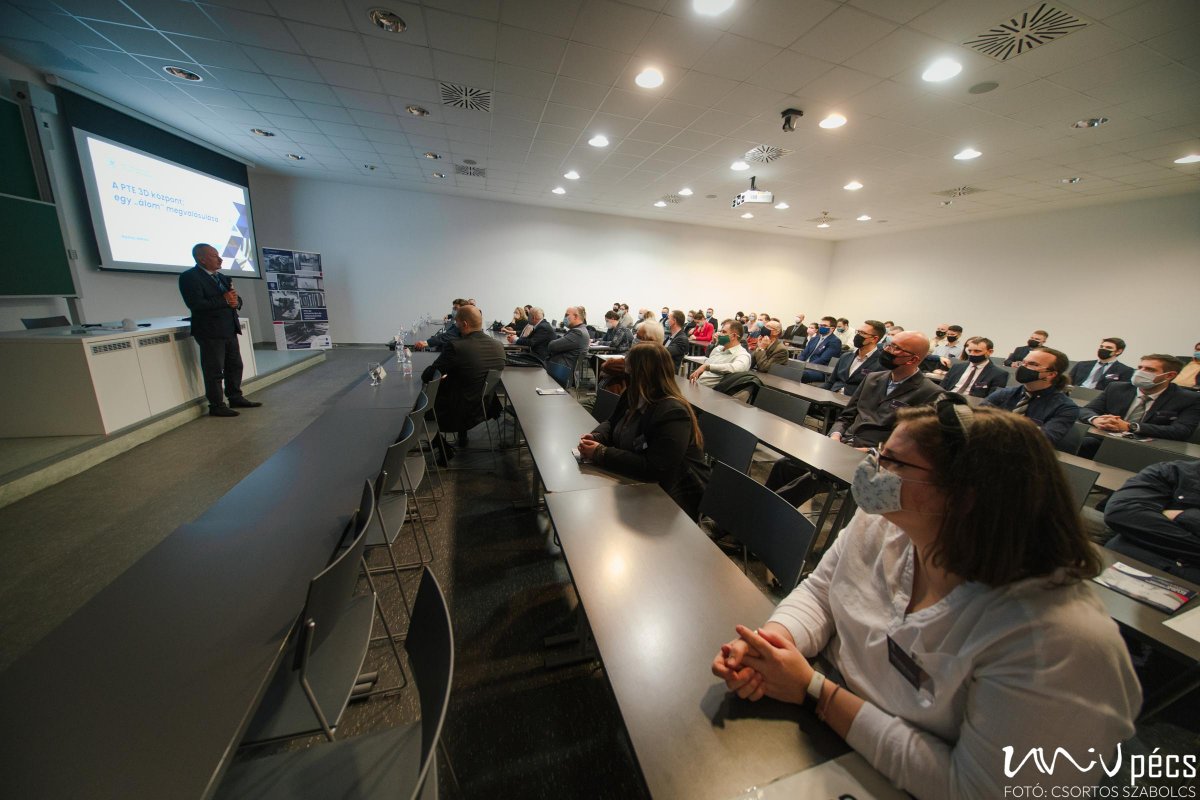
The future of the 3D Centre
It is now safe to say that the 3D initiative is one of UP's success stories.
All those involved in its implementation agree that the closing event means more than marking the end of a project, but the beginning of something even greater. The management and staff of the Centre for 3D Printing and Visualisation at UP are committed to making the institution a centre of national and international importance for education and science in the very near future. It will be a think tank that can efficiently and effectively support the implementation of further university and regional development plans and the university's marketization processes.
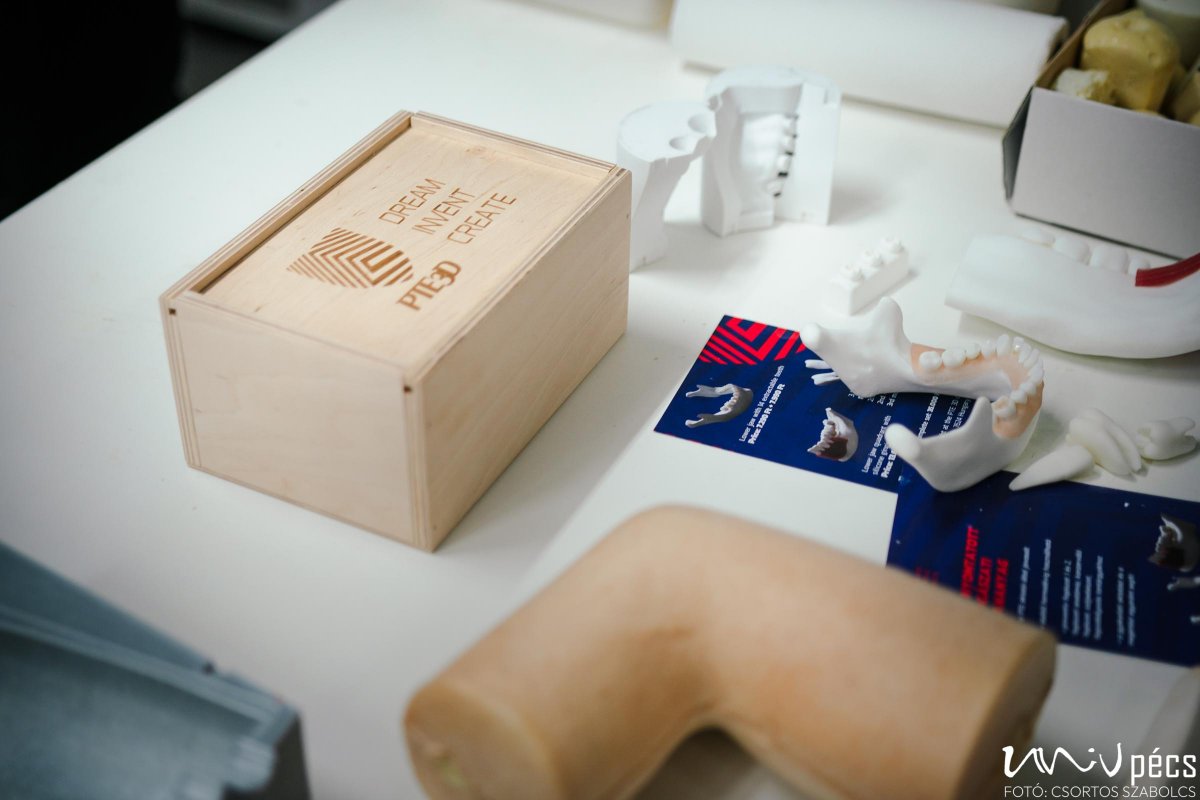
As a unique educational infrastructure, scientific workshop and service centre, where the latest 3D technologies are available, it will certainly continue to attract highly qualified professionals and systematically support innovation processes.
The next step will be to open it up to university and community education.
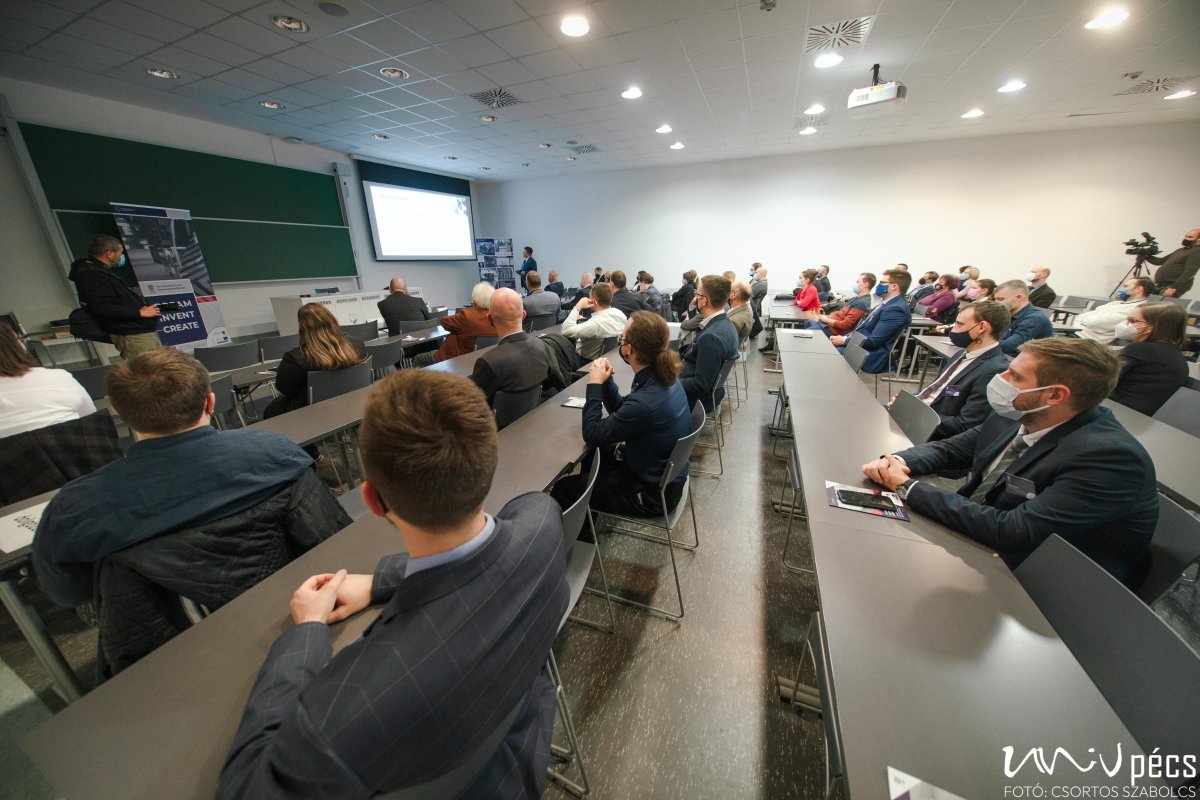
An excellent example of the former is the involvement in the creation and launch of the internationally advertised MSc in Biomedical Engineering in English, and the latter is the organisation of an ever-expanding range of courses in various 3D technologies such as printing and design. In the longer term, the aim is to capitalise on the knowledge and experience gained in the international scientific arena, the flagship of which could be the M3D-Vision platform, which will eventually enable inter-university educational programmes, even at EU level. The UP 3D Centre will also play a key role in the next major strategic programme of the University of Pécs, the creation of the Science and Innovation Park, thanks to the special knowledge, experience and complexity of the tools and equipment accumulated over the years by its unique team of experts, which is unmatched elsewhere.
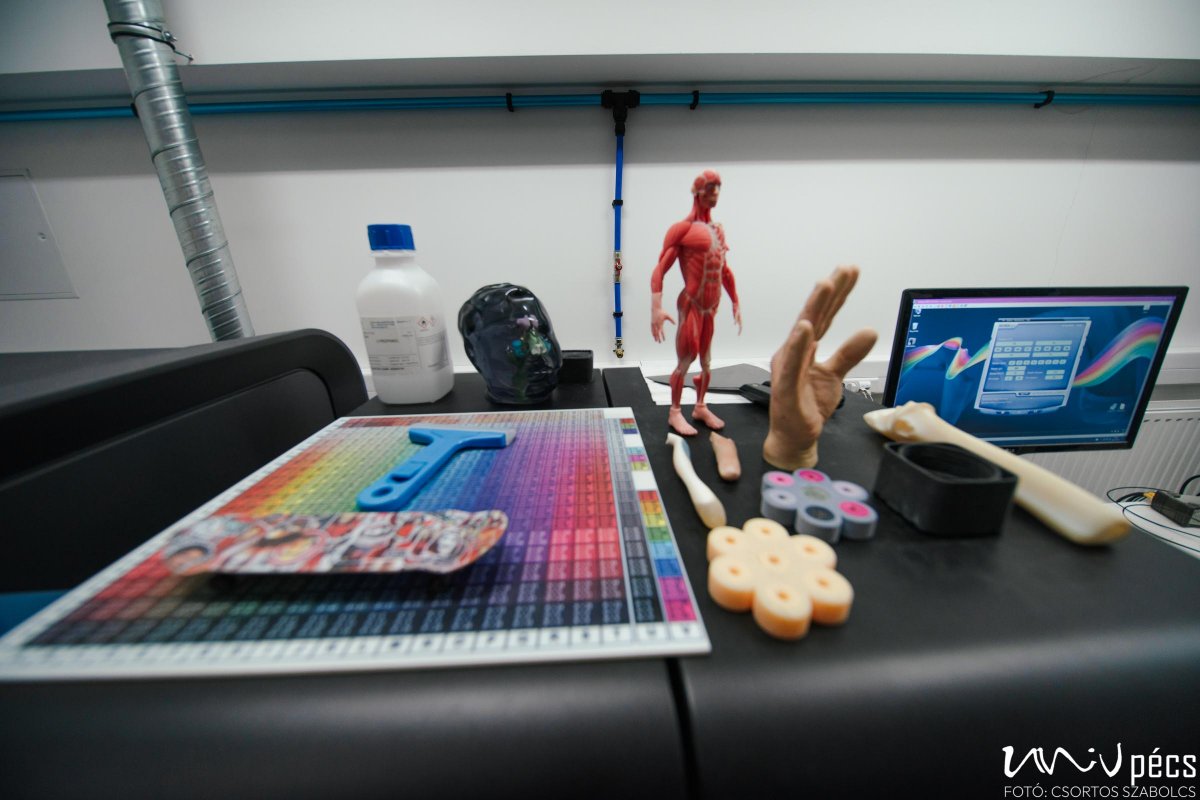
"The strict distinction of disciplines is becoming less and less possible and justified, so the most successful research teams will be those that develop and manage their research with this in mind. This requires a high degree of intellectual openness and bold, timely action. The 3D Centre is the embodiment of this thinking. I am sure that this constantly evolving centre will be a major university attraction for young people, and will therefore play an important role in shaping the future, in training the next generation, in addition to the success of the present."
- summarized Dr. Miklós Nyitrai, Dean of the Medical School, and head of the UP 3D project.
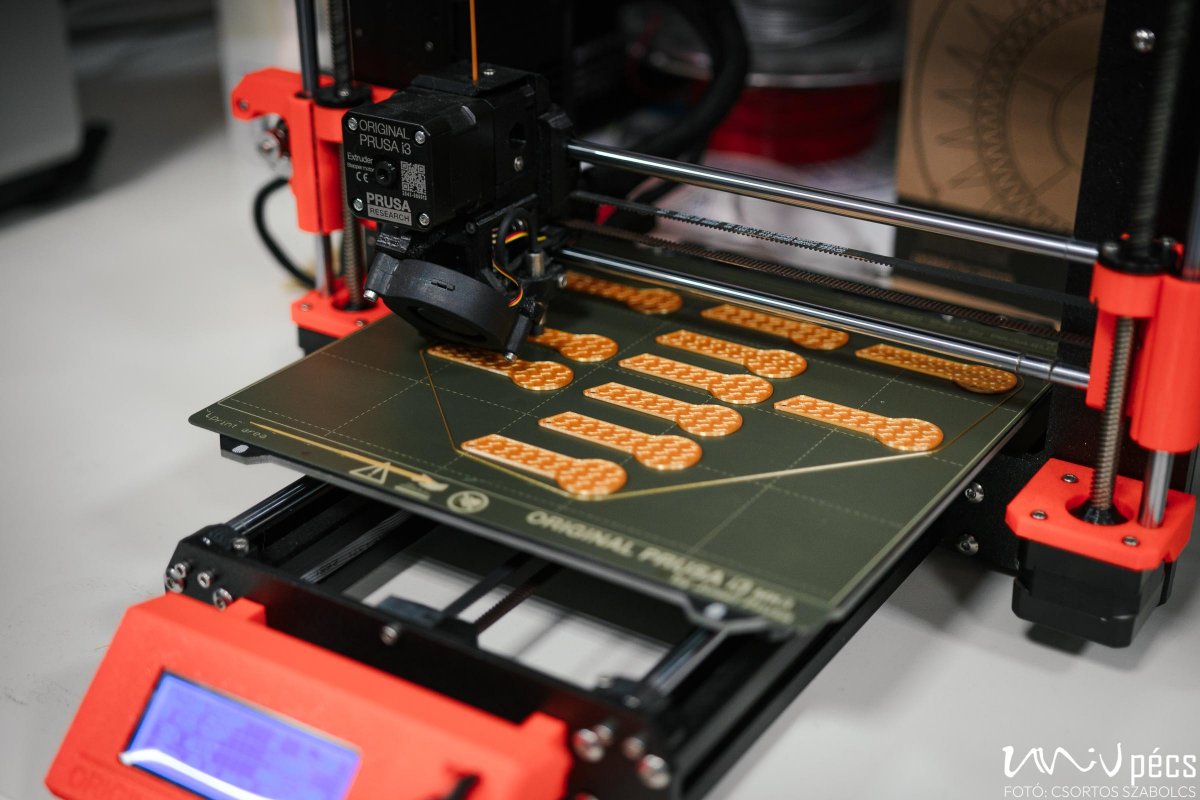
(GINOP-2.3.2-15-2016-00022, "Establishment of an interdisciplinary research, education and development centre for 3D printing and visualisation technologies at the University of Pécs")
Read more
The quality of life for people receiving neurorehabilitation was improved from HUF 650 million »


